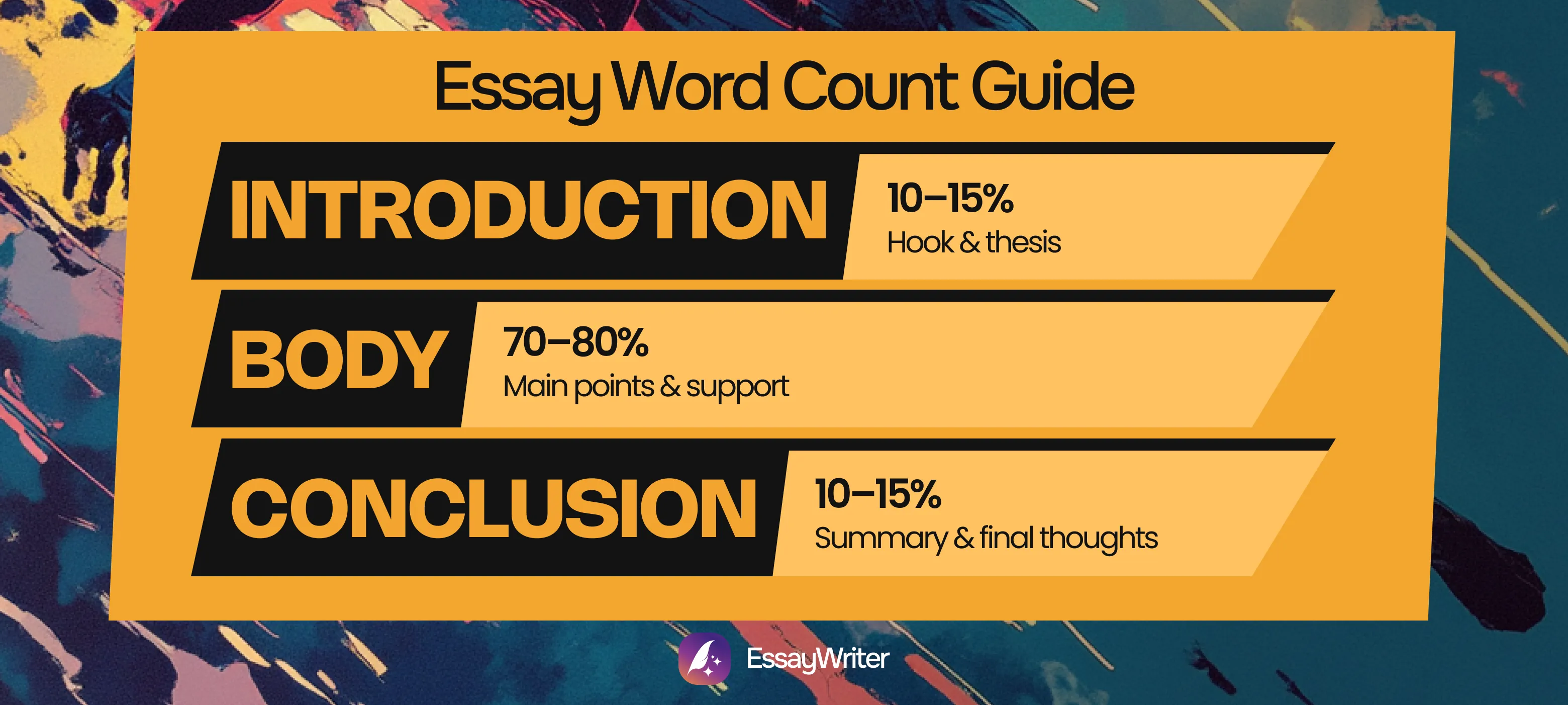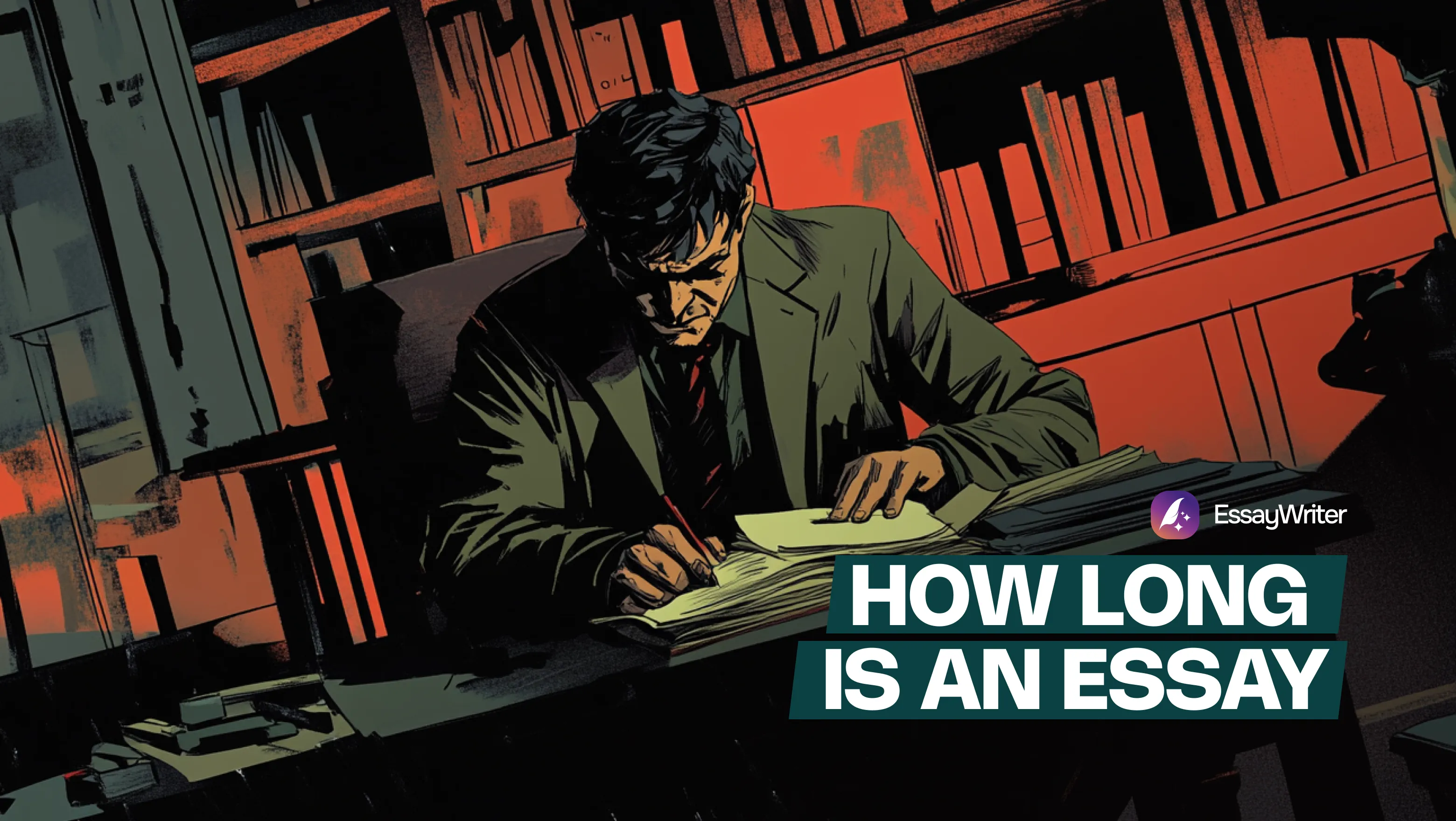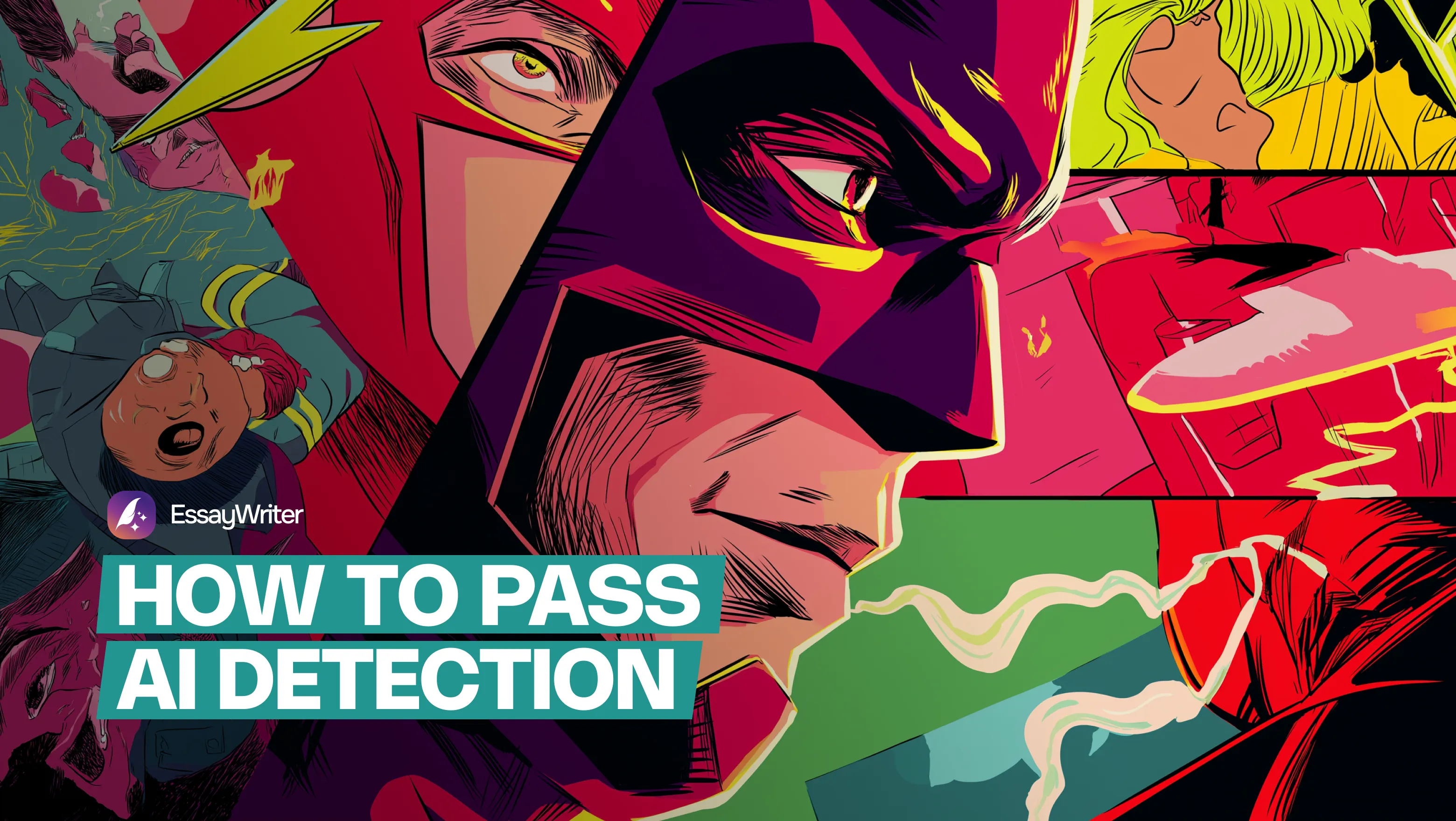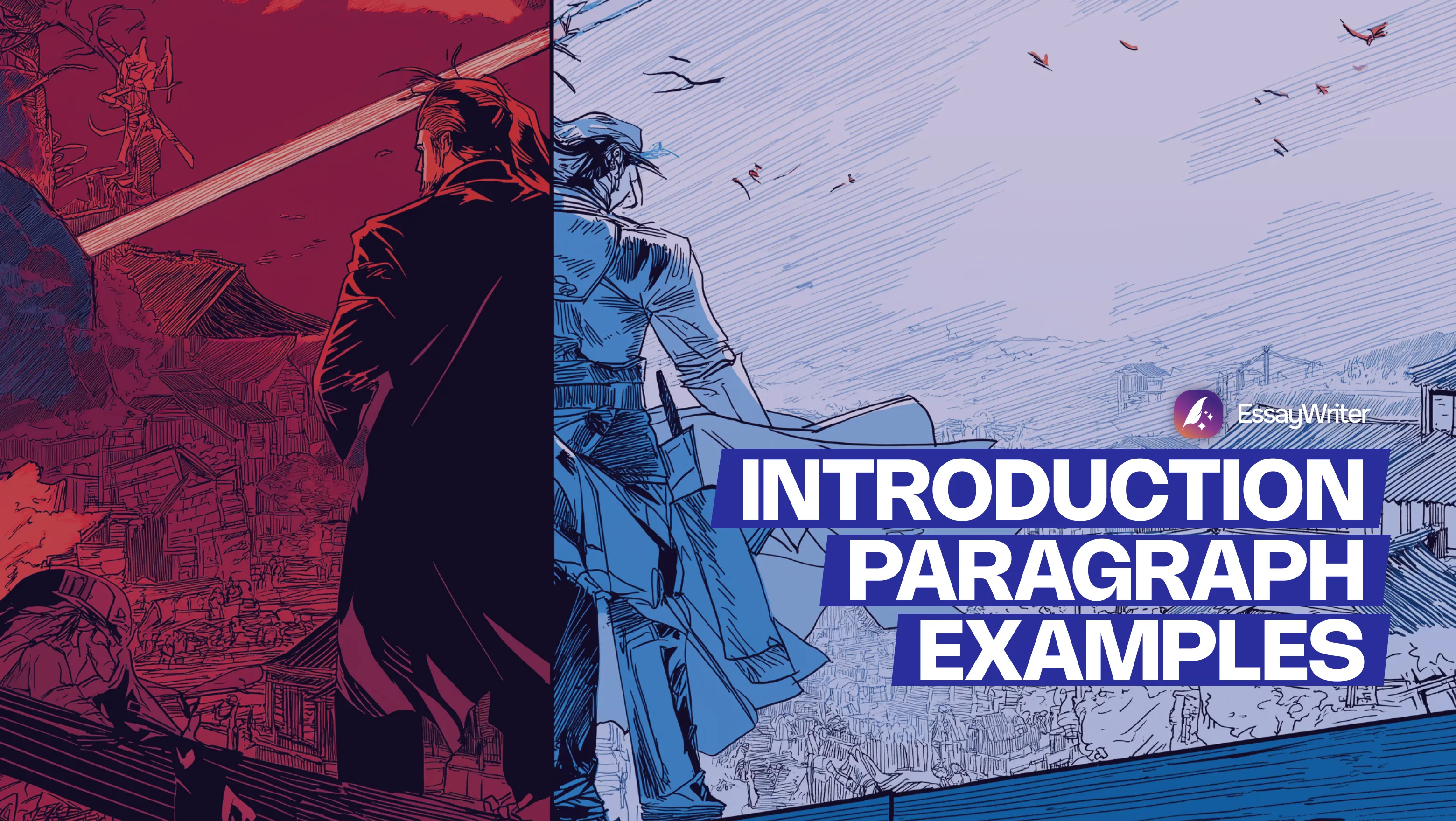The length of an academic essay depends on a few things, like your subject, course level, and what your department expects. Most essays are shorter than research papers, but that usually comes down to the assignment. Instructors typically give a word count or page range to work with. It’s generally between 1,000 to 1,200 words, or maybe 4 to 5 pages.
This guide will walk you through the general expectations for essay length. You’ll learn how to use word count to your advantage and build something that fits your assignment and your ideas.
And if you're stuck staring at a blinking cursor, EssayWriter, a reliable and free essay writer, is here to help through every step of the process!
Last-Minute Essay Stress?
Don’t panic. We’ve got writers who can help you meet your deadline without losing sleep.
Get Writing Help
Guidelines for Essay Length
Every essay has its own optimal word count. The expected length matches your depth of analysis to the kind of assignment you're working on.
Take a quick look at typical lengths by type, along with what each one usually includes.
High School Essay
The length of high school essays is usually somewhere between 300 and 800 words. They're designed to help students get comfortable with structure. You’re not expected to dive deep into complex ideas yet. The main goal is to take a clear position and support it with a few solid examples or arguments.
College Admission Essay
Most college applications call for a personal essay between 250 and 650 words. You don’t use academic jargon or long citations. Instead, it’s your shot to tell a meaningful story about yourself. What drives you? What moment changed your outlook? Admission officers want to hear a voice that sounds real, not rehearsed.
Undergraduate Essay
Undergrads are usually asked to write 1000-3000-word essays. You’re expected to take a clear stance and back it up with evidence. These essays often include quotes, citations, and examples from outside sources. You’re building arguments and analyzing ideas here, instead of just sharing opinions.
Graduate School Essay
Grad school essays tend to go deeper and longer, with many running between 2,500 and 6,000 words. You’ll need to show that you can think critically, pull together complex theories, and work with multiple sources. You can’t throw together these essays overnight. And in fields like philosophy, education, or public policy, the expectations for originality and structure are even higher.
Research Paper
Research papers can stretch well beyond typical essay limits, anywhere from 3,000 to 10,000 words, depending on your course and topic. You’re expected to ask a real question, do original research, present your findings, and back them up with solid evidence.
See a related article on possible consequences of plagiarism to stay on the safe side while working on your paper!
Word Count for Each Part of an Essay
It’s important to know how much space must be dedicated to each section when planning the length of an essay. Let’s take a look at the main parts of academic papers and how long each should be:

- Introduction (~10–15%) – The introduction should give enough background to frame the topic and state why it matters. It should end with a lead into the thesis naturally. Use this part to prepare the reader for what comes next.
- Body (~70–80%) – You develop your argument here. Each paragraph should start with a clear topic sentence that addresses a single idea. You must support all claims you make with solid evidence. The body naturally becomes the largest part of your essay, so, most of the word count goes here.
- Conclusion (~10–15%) – The concluding paragraph restates the thesis in different words. You draw the most important points together here. The conclusion adds no new arguments but rather highlights why the discussion was significant.
Letting the Length of the Essay Guide Your Topic
The length of the essay can tell you a lot about how detailed your topic needs to be. A short paper, say, 500 words, usually works best with a narrow, focused idea. Here, you don’t have room to explore multiple angles. You want to stick to one clear argument.
Once your essay hits 2,000 words or more, you’re expected to dig deeper. This length gives you a chance to unpack your ideas fully and build more complex points, while using a mix of sources to support what you're saying.
And when assignments stretch to 4,000 words or beyond, it's a clear sign that surface-level arguments aren’t it. You’ll need to dedicate more time to research, create space to explore the details, and use strong transitions to keep everything working together from start to finish.
Stretching a simple idea across five pages is where the filler shows up. Similarly, trying to fit a huge topic into a short essay can make your writing feel rushed or incomplete.
What Happens If My Essay Is Too Short?
Falling short of the required word count might seem tempting, especially if you feel like you’ve said everything that needs saying. But cutting it too close can leave your ideas underdeveloped and your grade at risk. Instructors set those ranges for a reason. If you submit 700 words on a 1,000-word assignment, it could look like you didn’t fully engage with the topic.
That said, going slightly under isn’t always a dealbreaker. If you’ve made your point clearly and covered the key points, you might still be in good shape, especially if there’s no strict penalty. The downside is that you may miss opportunities to explore your ideas in more depth.
What Happens If My Essay Is Too Long?
You might think that writing more than the suggested word count is a good thing. After all, you’ve done the work, added detail, and backed it up with sources. But if that extra content doesn’t move your argument forward, it could end up hurting your grade. Professors usually set word limits with pacing, focus, and grading time in mind. If you stretch too far beyond it, your essay might feel off track.
Again, in some cases, going over by a small amount is fine, especially if you’re exploring complex material or including original research. Just make sure every paragraph earns its place. Adding unnecessary examples or repeating points will only weaken your writing.
And if you’re pulling content from something you’ve written before, even your own work, be careful. Reusing past writing without proper credit can be risky. Read our article on how to cite yourself to avoid accidental self-plagiarism.
Smart Tips for Controlling the Word Count
Word count guidelines are there for a reason, even if they seem limiting at first. Knowing the average word count for an essay gives you a starting point. What matters most, though, is how you distribute those words.
- Set targets for each section – Decide how many words will go in separate sections before you start writing.
- Draft longer, then cut – Write freely at first. In revision, remove filler and tighten phrasing.
- Watch paragraph size – Keep each paragraph between 120 and 180 words. Anything longer than that might risk losing focus.
- Be selective of what you include – Use only the examples that directly prove your thesis.
- Streamline transitions – Use concise transitions so the essay flows without wasting words.
The Bottom Line
So, how long is an essay? There’s no single answer. It depends on your topic, academic level, and assignment type. Here’s what to remember:
- Essay length often reflects assignment depth and complexity
- Short essays need sharper focus, long ones demand more structure
- Each part of the essay has a general length range
- Going under or over the limit can work, but only with a purpose
- Word count can guide topic selection and level of analysis
If you ever find yourself stuck between too few words or way too many, remember, EssayWriter can help. The platform offers support for every stage of your writing process!
FAQs
How Long Should an Essay Be?
Most essays range from 500 to 3,000 words, depending on the topic and course level.
How Many Paragraphs Is an Essay?
A typical essay has 5 to 8 paragraphs, but the number can vary with the word count.
Can an Essay Be 3 Paragraphs?
Yes, for very short assignments. Just make sure it includes an intro, body, and conclusion.
Classical Liberal Arts Academy. (n.d.). What different essay lengths look like. Classical Liberal Arts. https://classicalliberalarts.com/blog/what-different-essay-lengths-look-like/
Recommended articles



